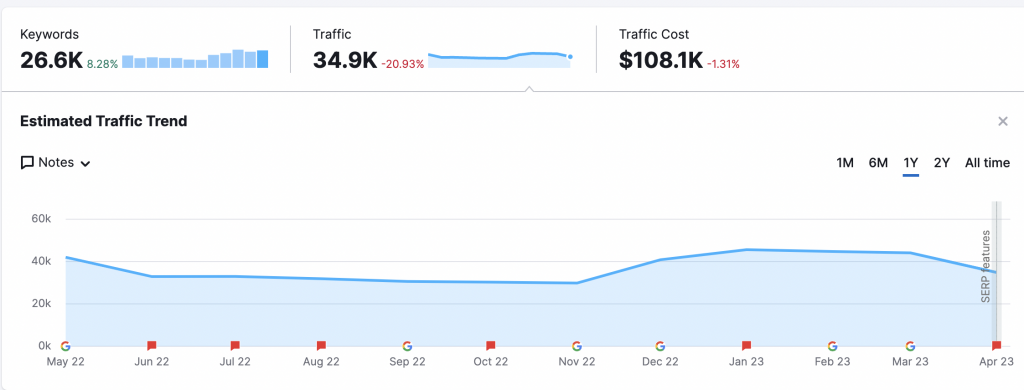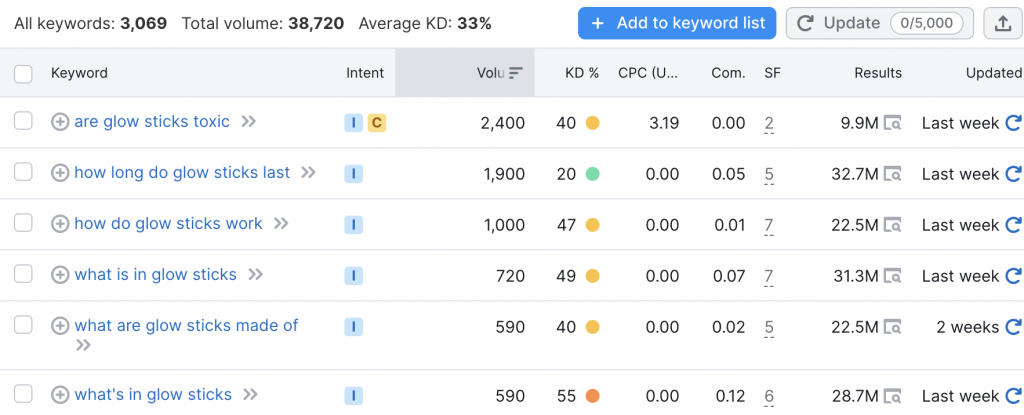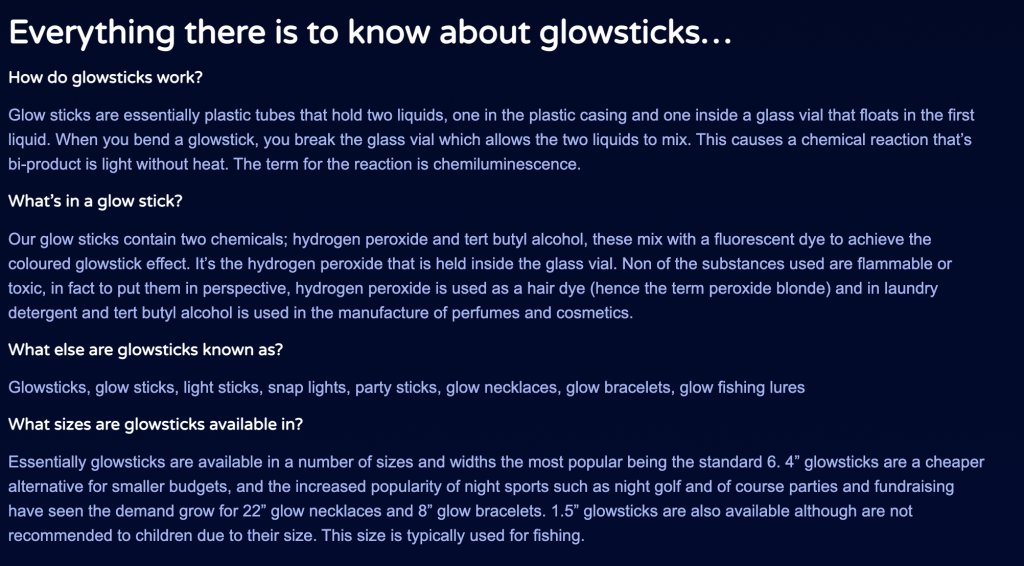Have you ever wondered what an SEO specialist does all day? It’s not just about randomly typing keywords into a search engine and hoping for the best.
In this article, we’ll take an in-depth look at the day-to-day life of a search engine optimization professional and discover the essential tasks, responsibilities, and skills involved in this demanding but rewarding career.
I’ll lay out a case example of what this would look like with mock client, let’s call them “GlowTech Solutions”

The Role of an SEO Specialist
Let’s begin by clarifying the role of an SEO specialist. Essentially, this individual is responsible for improving a website’s visibility and ranking in search engine results pages (SERPs). Numerous tasks are involved in achieving this, so let’s break them down in more detail.
When optimizing for this company, the SEO specialist must also focus on the technical aspects of the site. This includes ensuring that the site is mobile-friendly, has a fast loading speed, and is structured in an easy way for search engines to crawl and understand. They must also ensure that the site has proper meta tags and descriptions and a sitemap that makes it easy for search engines to index all its pages.
Key Responsibilities and Tasks
One of the most essential tasks of an SEO specialist is conducting keyword research. This requires a deep understanding of the target audience and the words and phrases they use to search for relevant content. Based on this research, the specialist must optimize the web pages for those specific keywords while also considering the importance of quality content and proper structure.
The day in the life of an SEO specialist won’t be too disimmal than one of a digital marketer, it will include the same, on average, marketers spend around 16 hours a week on routine tasks, SEO involves a ton of routine task to drive toward results.
Another crucial job facet is developing and implementing a comprehensive and effective backlink strategy. This involves creating relationships with other websites and businesses to earn links back to the targeted site – a crucial factor in the eyes of search engines when determining page ranking. The SEO specialist must also analyze the quality of the backlinks, ensuring they come from reputable and relevant sources.
In addition to keyword research and backlink strategy, an SEO specialist must constantly monitor and analyze the website’s performance. This includes tracking keyword rankings, organic traffic, and bounce rates, identifying areas for improvement, and making necessary changes.
Essential Skills and Qualifications
An SEO specialist must be highly skilled in their craft, with a solid understanding of search algorithms and best practices for ranking. Additionally, they must keep up-to-date with changes to these algorithms and adjust their strategies accordingly.
Good communication skills are also necessary, as SEO specialists often work with writers, developers, and designers to implement a comprehensive marketing plan. Flexibility, creativity and the ability to analyze and interpret data are all vital skills for the job. An SEO specialist should also have a strong understanding of HTML, CSS, and JavaScript and experience with various SEO tools such as Google Analytics and SEMrush.
Overall, the role of an SEO specialist is complex and multifaceted, requiring a combination of technical, analytical, and creative skills to succeed. An SEO specialist can help businesses improve their online visibility and drive targeted traffic to their site by focusing on keyword research, backlink strategy, and website optimization.
Morning Routine: Starting the Day Right
Starting the day on the right foot is crucial for success in any field, and our SEO specialist is no exception. Our specialist begins the day by reviewing performance metrics from the previous day or week for GlowTech Solutions.
This includes analyzing traffic volume, engagement levels, and conversions. This data helps them identify areas that need improvement and successes that should be replicated.

Our specialist can gain valuable insights into the website’s performance and user behavior by analyzing the previous day’s data. This information can be used to make informed decisions about optimizing the website and improving search engine rankings.
Once the data analysis is complete, our specialist creates a prioritized task list that outlines the day’s goals and objectives. These tasks could include checking site structure and user experience, analyzing competitor performance, or updating web content.
Reviewing Performance Metrics
The morning is also an ideal time to track and analyze the performance of the various web pages. Our specialist reviews data obtained from Google Analytics, Site Audit tools, and rank-tracking software, which allows them to drill down into the information required to establish what is working and what isn’t. This information will help find out necessary changes to be made in order to improve user experience, drive traffic, and boost conversions.
By analyzing the performance metrics, our specialist can identify which pages are performing well and which need improvement. This information can be used to optimize the website’s content and structure, making it more user-friendly and engaging.
Prioritizing Tasks and Setting Goals
Based on the data analysis, our specialist now creates a task list that outlines the priorities and objectives for the day ahead. The task list could include on-page optimization, content creation, backlink building, or other strategies to boost website visibility and improve ranking.
Prioritizing the more critical and influential changes is crucial to ensure maximum impact from available resources. By setting goals and prioritizing tasks, our specialist can ensure that the day’s work is focused and productive, leading to improved website performance and, ultimately, increased revenue.

Overall, starting the day with a focused routine is essential for success in SEO. By analyzing performance metrics, prioritizing tasks, and setting goals, our specialist can optimize the website and improve its ranking in search engines, leading to increased traffic and conversions.
Mid-Morning: Diving into Keyword Research
With the morning routine complete and priorities established, our specialist moves on to keyword research.
Identifying Target Keywords
This process begins by scouring the web and other authoritative resources to identify keywords relevant to the business and the target audience. These keywords are integrated into content, meta tags, URLs, and other on-page elements to improve website visibility and ranking.
GlowTech Solution sells Glow Sticks, we’ll need to dive into this topic to glean all the related terms to this:

But how do we know which keywords are relevant and adequate? It’s not just about picking the most popular ones. Our specialist deeply dives into the business’s industry and target audience to identify specific pain points, needs, and desires. From there, a list of potential keywords is generated.
But it doesn’t stop there. The specialist also looks at search volume, competition, and cost-per-click for each keyword to determine its potential effectiveness. This data-driven approach ensures that the keywords chosen will significantly impact the business’s online presence.
Identifying long-tail and short-tail keywords from the list is crucial to effectively target potential customers searching for specific products, services, or features. Long-tail keywords are more specific and targeted, while short-tail keywords are more general and broad.
Analyzing Competitor Strategies
A savvy SEO specialist also reviews competitor websites to identify the strategies they are using in their online marketing efforts. This analysis identifies potential gaps or opportunities to gain a competitive edge in the marketplace.
But what exactly does this analysis entail? The specialist looks at the keywords competitors use, their content strategy, backlink profile, and overall website structure. By understanding what works for the competition, the specialist can make informed decisions about what to incorporate into the business’s strategy.
But it’s not just about copying the competition. The specialist also looks for gaps in the competition’s strategy that the business can capitalize on. For example, if the match is not targeting a specific long-tail keyword the business’s target audience is searching for, the specialist can create content and optimize the website to rank for that keyword.
Keyword research and competitor analysis are crucial components of any successful SEO strategy. By understanding the target audience and competition, the specialist can make informed decisions about which keywords to target and what strategies to implement, ultimately leading to improved website visibility and increased traffic.
Afternoon: Crafting High-Quality Content
As the day progresses, it’s time to focus on creating high-quality content that will captivate your audience and keep them coming back for more. This is where the real magic happens, as you work to craft compelling stories, informative articles, and engaging multimedia that will leave a lasting impression on your readers.

But creating great content is about more than just writing well or developing clever ideas. It’s also about understanding your audience and what they’re looking for. That’s where keyword research comes in, as you analyze search trends and identify the most relevant and valuable topics to cover.
Collaborating with Content Creators
Of course, creating content is rarely a solo endeavor. That’s why our SEO specialist works closely with a team of writers, designers, and developers to bring your vision to life. Together, you’ll brainstorm ideas, refine your messaging, and create content that truly resonates with your target audience.
But collaboration isn’t just about bouncing ideas off one another. It’s also about ensuring your content is optimized for search engines so potential customers can quickly discover it. That means incorporating the right keywords, using effective headlines and subheadings, and creating a structure that makes sense to humans and search engine algorithms.
Optimizing On-Page SEO Elements
When it comes to on-page SEO, there are a few key elements that can make a big difference in your search rankings. These include your page titles, headers, and meta descriptions, which provide essential clues to search engines about the content on your page.
But optimizing these elements is about more than just stuffing in keywords or using generic titles. It’s about crafting compelling, informative, and accurate descriptions that reflect the page’s content. That means using natural language, providing valuable insights, and allowing readers to click through and engage with your content.
Ultimately, crafting high-quality content is a critical part of any SEO strategy. Creating content optimized for search engines and engaging your audience can build your brand, establish your authority, and drive more traffic to your website than ever before.
The final few hours of the day are dedicated to outreach and backlink profile analysis.
Outreach and Relationship Building
Our SEO specialist focuses on creating relationships with other websites and businesses to earn high-quality backlinks to promote the target website. This includes outreach, submissions to directories, competitor backlink analysis, and broken link repair.
Monitoring Backlink Profiles
Finally, our specialist monitors the backlink profile of the target website, identifies potential issues, and continually tweaks the link-building strategy to keep it compelling and fresh.
In Conclusion
In summary, the life of an SEO specialist is diverse and heavily focused on analysis, research, communication, and creativity. The role requires a solid understanding of search algorithms, expertise in keyword research, and good communication and analytical skills. The work never stops, but seeing the positive results of a well-executed campaign makes it all worth it for these professionals in the industry.
